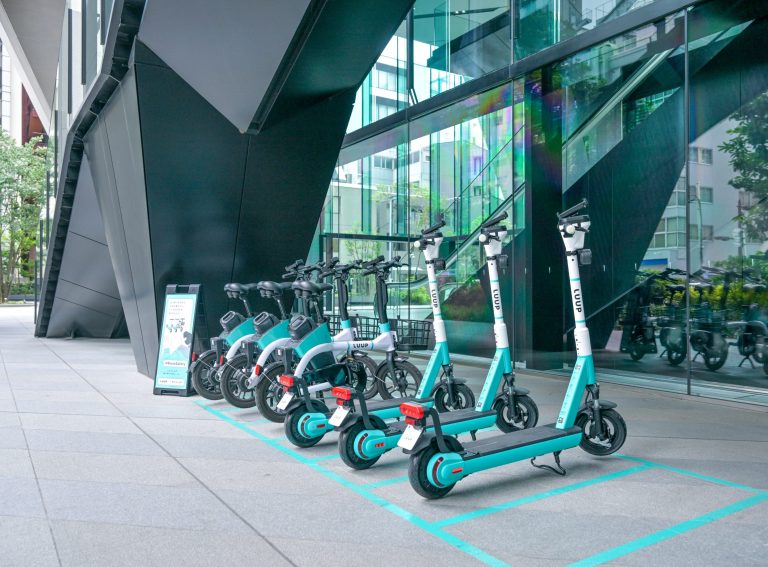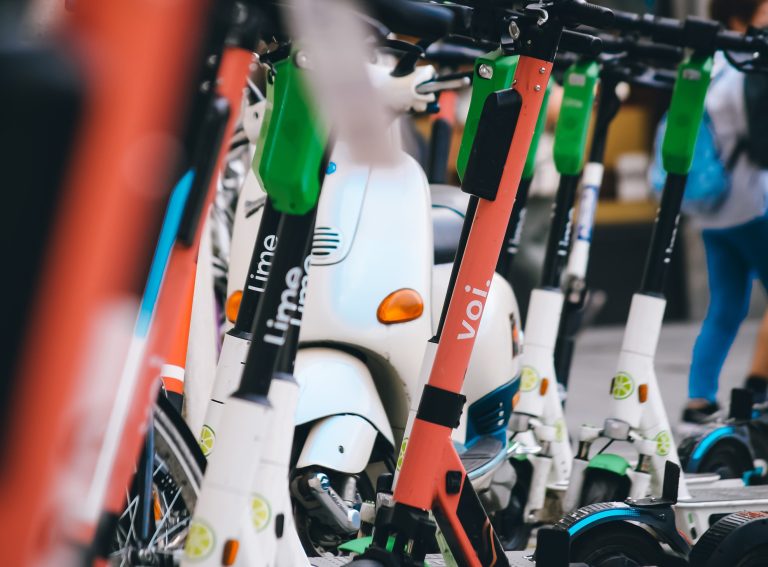Micromobility operator Dott has today released the first edition of its annual sustainability report measuring the impact and progress of its operations against targets throughout 2021.
The report follows the Global Reporting Initiative (GRI) Standards, and Dott’s sustainability goals link directly to the United Nations Sustainable Development Goals.
One area where Dott overachieved last year was in its operations. By shifting to electric vans and cargo bikes to run its back end, the company reduced its greenhouse emissions by 48% compared to 2020, exceeding its 40% target. Currently the firm is at 39.98g CO2 per km ridden and is targeting under 20g by 2025.
To make it easier for people to find sustainable and efficient alternatives to car travel, Dott has integrated with 27 mobility-as-a-service (MaaS) options including Google Maps and FREE NOW, helping facilitate seamless travel between transport modes. Dott has been trying to increase the length of the average journey on its vehicles to over 2km. As it stands, the average length is at 2km for its e-scooters and 2.5km for its e-bikes.
“In our first sustainability report we want to make sure we are setting a standard of transparency, holding ourselves accountable where we can improve as well as being proud of our achievements,” Dott’s Head of Sustainability Laura Hensel told Zag Daily.
“For example, in 2021 we reduced our emissions by 48%, as well as finding new ways to support local communities and starting partnerships that allow for true circularity in our operations. To bring us to our targets we are focusing on further increasing our vehicle lifespan and working with suppliers to reduce the impact of production which will help our service be even more sustainable in the future.”
In terms of vehicle lifespan, the company’s first generation vehicles continue to be in use in their fourth year despite an estimated 18 month lifespan. Dott is looking to achieve less than 1.5% average broken-beyond-repair rate and is currently at 1.4%. Working with battery firm Gouach, Dott is exploring new ways to repair its batteries to increase the lifespan of one of the most CO2 intensive elements of its vehicles.
From a recycling standpoint, vehicle parts that cannot be repaired are dismantled with reusable parts being used to maintain the fleet. At the moment, 80% of waste is recycled with a target of 90% by 2025.
Finally, in its ambitions to be an inclusive responsible employer, Dott created 194 new jobs in 2021. By the end of last year, 38% of HQ staff identified as women. The firm is targeting 50% leadership and HQ roles by women by 2025 and is currently at 25% and 38% respectively.




